Often when children are learning to read and write they are given an assignment in which they are asked to compose a letter to send to someone. The date is put in the upper right hand corner of the page with the word “Dear” written on the left followed by the recipient’s name. The body of the letter then is written with the customary “yours truly” and then the writer’s name. As a final word of instruction, the child is told to add a P.S. with a short afterthought. Little do they know that it stands for the Latin “Post Scriptum” i.e., “written after.”
Letters written to Santa Claus on suggestions for Christmas gifts might be the first correspondence composed and sent by young ones. But then there might be summer camp where the child is away from home for the first time and homesick composes a letter for mom and dad.
Interestingly, children’s correspondence found their way to C. S. Lewis during his writing career. As one chronicle after another was published enthralling young readers with the enchanted world of Narnia, a steady stream of letters began to arrive at the Kilns addressed to C. S. Lewis. The busy Oxford Don felt it his duty to personally respond to these letters.
A number of the most memorable of Lewis’ correspondence to kids has been gathered in the book C. S. Lewis Letters to Children compiled by Lyle Dorsett and Marjorie Mead. A simple overview of the book is as follows:
“In his life, C.S. Lewis received thousands of letters from young fans who were eager for more knowledge of his bestselling Narnia books and their author. Here are collected many of his responses to those letters, in which he shares his feelings about writing, school, animals, and of course, Narnia. Lewis writes to the children – as he wrote for them – with understanding and respect, proving why he remains one of the best-loved children’s authors of all time.”
The letters from young writers are fascinating reading. One little boy with the help of his mother had written to Lewis saying that he was worried that he loved Aslan the lion king of Narnia more than Jesus whom the lion symbolized.
Here is Lewis’ reply:
“Laurence can’t really love Aslan more than Jesus, even if he feels that’s what he is doing. For the things he loves Aslan for doing or saying are simply the things Jesus really did and said. So that when Laurence thinks he is loving Aslan, he is really loving Jesus: and perhaps loving Him more than he ever did before.”
C. S. Lewis also gave this recommendation for a prayer:
“If I were Laurence I’d just say in my prayers something like this: ‘Dear God, if the things I’ve been thinking and feeling about those books are things You don’t like and are bad for me, please take away those feelings and thoughts. But if they are not bad, then please stop me from worrying about them. . . . And if Mr. Lewis has worried any other children by his books or done them any harm, then please forgive him and help him never to do it again’.”
But along with spiritual advise, C. S. Lewis also responded to aspiring young writers who want to hone their own budding literary skills.
Here is some writer’s coaching Lewis gave: “In writing. Don’t use adjectives which merely tell us how you want us to feel about the thing you are describing. I mean, instead of telling us a thing was “terrible,” describe it so that we’ll be terrified. Don’t say it was “delightful”; make us say “delightful” when we’ve read the description. You see, all those words (horrifying, wonderful, hideous, exquisite) are only like saying to your readers, ‘Please will you do my job for me’.”
Likewise C. S. Lewis also included moral instruction for young lives: “Remember that there are only three kinds of things anyone need ever do. (1) Things we ought to do (2) Things we’ve got to do (3) Things we like doing. I say this because some people seem to spend so much of their time doing things for none of these three reasons, things like reading books they don’t like because other people read them.”
One gets the impression from the letters Lewis wrote that he valued the young lives of those who wrote to him. Children were not be to viewed as excess baggage whose heart concerns were to be handed off exclusivel to day care or school. Instead, each young life should be interacted with in the journey of life.
In his essay “On Three Ways of Writing for Children” Lewis wrote about how he identified with the young mind:
“Critics who treat adult as a term of approval, instead of as a merely descriptive term, cannot be adult themselves. To be concerned about being grown up, to admire the grown up because it is grown up, to blush at the suspicion of being childish; these things are the marks of childhood and adolescence. And in childhood and adolescence they are, in moderation, healthy symptoms. Young things ought to want to grow. But then into middle life or even into early manhood this concern about being adult is a mark of really arrested development: When I was ten I read fairy tales in secret and would have been ashamed if I had been found doing so. Now that I am fifty I read them openly. When I became a man I put away childish things, including the fear of childishness and the desire to be very grown up.”
C. S. Lewis’ attitude toward writing for children reflects the inviting and interactive approach Our Lord took with them during His ministry on earth. An exhausting schedule of teaching and healing competed for the attention of the God who had become man. The disciples were sensitive to his work load and so when children sought to connect with Jesus an attempt was made to push them away.
Let’s read Matthew’s record of how Christ responded to this:
3 Then children were brought to him that he might lay his hands on them and pray. The disciples rebuked the people, 14 but Jesus said, “Let the little children come to me and do not hinder them, for to such belongs the kingdom of heaven.” 15 And he laid his hands on them and went away (Matthew 19:13-15).
In view of Jesus Christ’s attitude toward children, what changes should we make in how we respond to them?

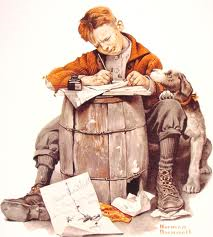

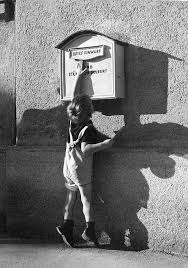
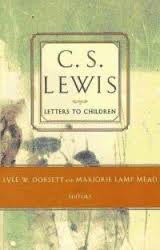


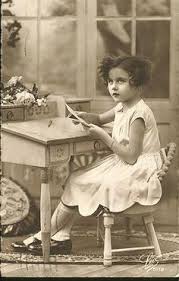
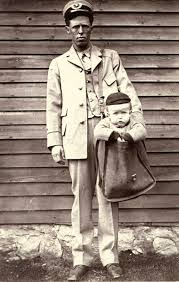

This book of his letters to children would be a nice gift for one of my granddaughters who loves to read and write. Reading and discussing the book could be a fun together time.
LikeLike
Despina: It is remarkable how the great Oxford scholar gets into the minds and hearts of his younger correspondence. It is a great example to us. Hope getting the book brings many blessings. Thanks for your faithfulness on the blog!
LikeLike
The hearts of children often have remarkable clarity. Our Lord knew this.
When the disciples tried to limit the access of children to Jesus during His ministry on earth, the Lord became indignant about it, giving the disciples rebuke, saying that hearts of children are a big part of what comprises the Kingdom of God, so to “suffer not the children to come to Me…”
Elsewhere we are told are told that having the heart of a child in many ways figuratively, is essential to even come into the Kingdom of God.
Uncluttered, Open.
Absent the need to obfuscate arrogance or duplicity.
Because it isn’t there/
Across a wide age range the message of the Lord casts an invitation.
Love, Forgiveness for repentant hearts, Restoration of fellowship and life purpose, now and in the days ahead.
It sounds like C.S. Lewis got the message and let it permeate his life work from that time forward.
The same kind of wide ranging appeal, whether by age, or location on the spectrum of honest human interest, this is a good example for us in life.
A child-like heart is a trustworthy one.
In life, growth, leadership, it is important that we be found trustworthy (faithful)
Starting with the heart of a child, the Lord can make us that way.
Encouraging the heart of a child is serious business.
LikeLike
Thanks for your eloquent thoughts, Thom. I especially liked “Encouraging the heart of a child is serious business.”
LikeLike
Wonderful thoughts. I do love the fact that C. S. Lewis made children a priority in his life. And we can ask ourselves just how the Lord would have us do the same. One thing for sure, we should take time for them in playing with them. And above all, regularly praying for them. They should know beyond the shadow of a doubt that we are completely for them, that we love them, and pray for them. Though the latter of course is simply true in its effect in their lives, whether they realize we do it or not.
LikeLike
Ted: It is always good to recall we all started out as children and patterns begun then persist in our adult lives. Those who cheer lead our successes and guide our moral character are major influences on our lives.
LikeLike
This article brings to mind another Mere Christianity quote: “He [God] wants a child’s heart, but a grown-up’s head. He wants us to be simple, single-minded, affectionate, and teachable, as good children are, but he also wants every bit of intelligence we have to be alert at its job, and in first-class fighting trim.”
I think much of the reason we lose the aforementioned childlike characteristics is prolonged exposure to a broken, sinful world, and increased exposure to it as we grow older. May we all try, with God’s grace, to become as little children at heart and enter the Kingdom of God.
LikeLike